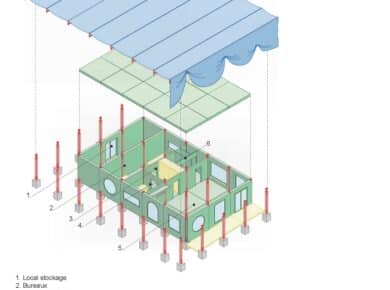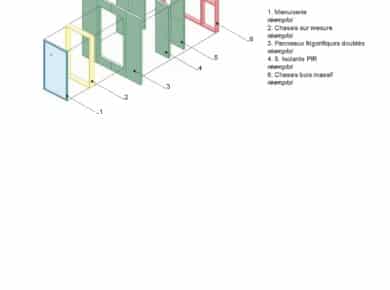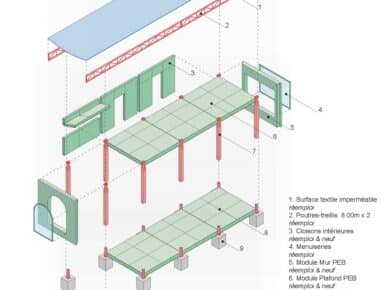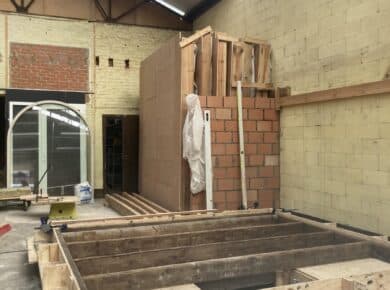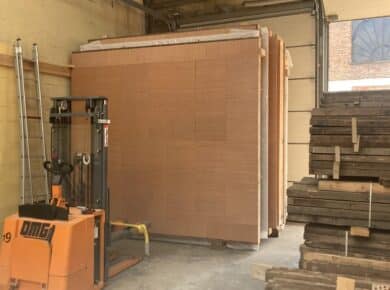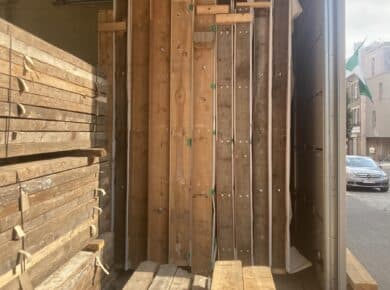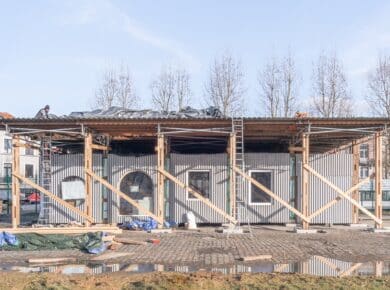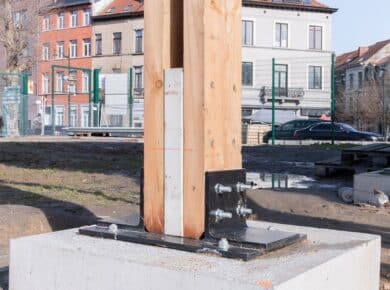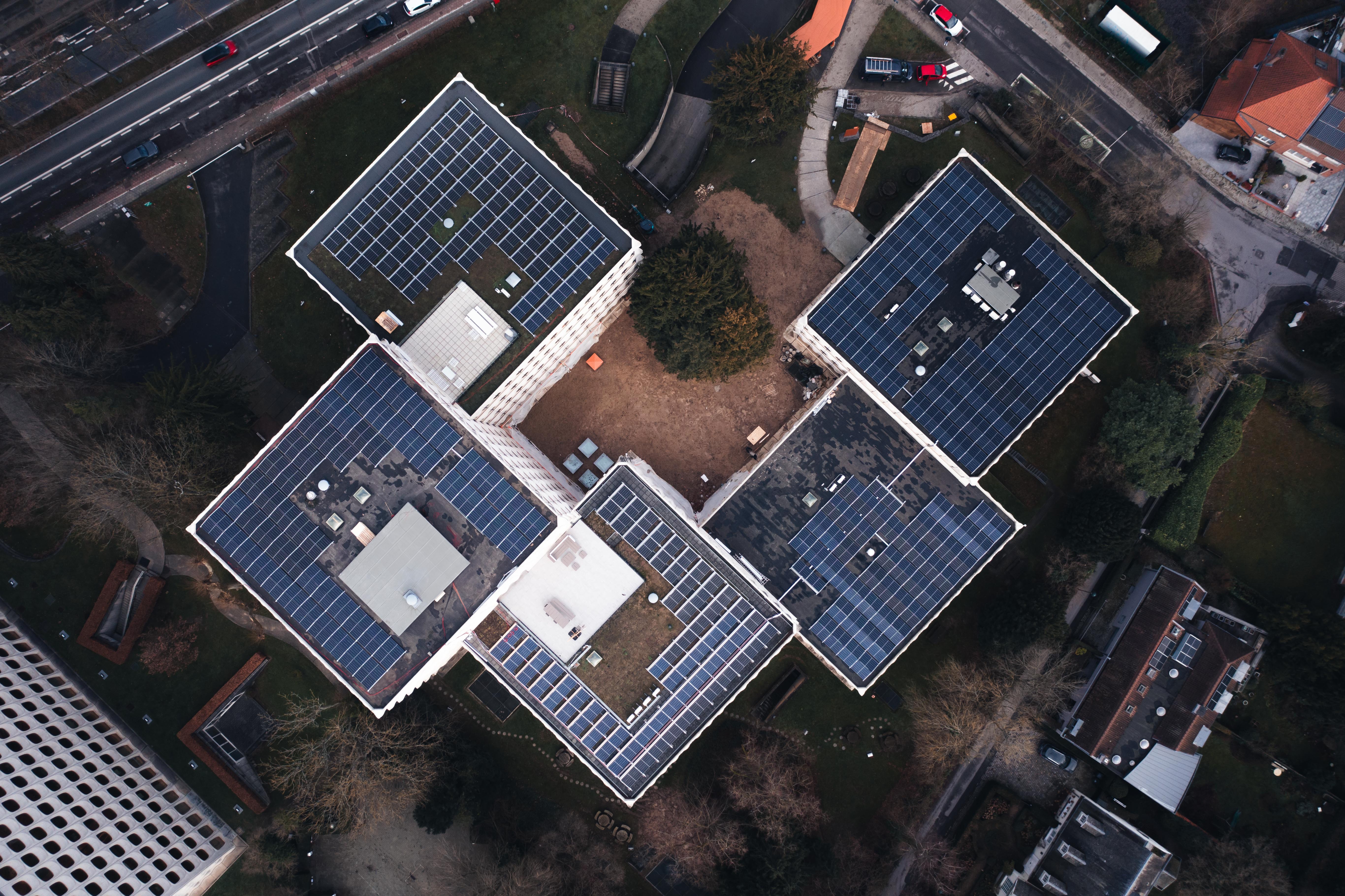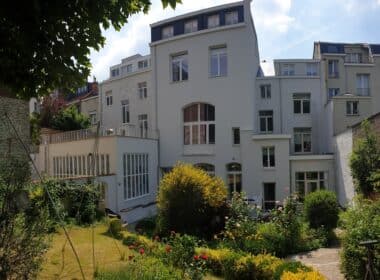The temporary pavilion developed by Skope and collectif dallas was designed and constructed as a dismountable pavilion made of entirely reusable materials.
An innovative project for the client (Brussels Environment), the municipality of Molenbeek and the architectural office, this pavilion has highlighted the difficulties, inconsistencies or standard shortcomings involved in the conception and implementation of a project with resolutely contemporary principles; whether in terms of the temporary occupation statutes, town planning permits, the requirements in terms of energy performances, or any guarantees for the recycling of technical equipment etc.
It is thanks to the openness, conciliatory attitude and administrative inventiveness of the public actors involved that the pavilion will see the light of day while keeping its promises in terms of recycling.
To these requirements, and thanks to the use of a simple and regular pattern, the designers have added a complementary principle: modularity in order to achieve greater circularity. The durability of the pavilion depends on its ability to adapt and adjust itself to the site hosting it.
The challenge for the project implementation lies in the availability of resources. It is thanks to platforms such as Opalis, a platform for the recovery of reusable materials, that we have been able to find suppliers who are active in the recycling sector.
As the material pool is constantly changing, there has been a lot of coming and going. By the time the construction principles were validated with the engineers, the resources were no longer available. This requires creativity upon the part of the designers and actors involved with the project to use or divert building materials available in these recycling sectors.
